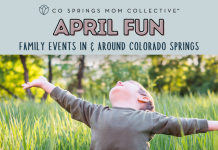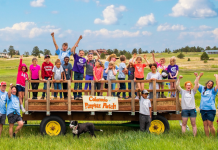Understanding depression, if you have no exposure to it through close family or friends, can be a challenge. We all have times when we feel a little “down”. But that’s not what I’m talking about. I’m talking about something deeper, something that requires help.
A quick Google search tells me that approximately 20% of the American population deals with depression. Given the reluctance to get mental health care, my instincts tell me it’s probably higher. There’s a good chance that you know someone dealing with depression. Perhaps even battling it. The odds are that the reality isn’t quite the way you picture it.
The worst outcome of depression is something we’ve all seen in the news. Suicide. We hear of a suicide and the general reaction, especially when the victim is young, is why didn’t they ask for help? So many would have been there to help – if only they’d asked.
What I want you to understand is: They CAN’T.
Another quick trip to Google, and I can list for you some of the symptoms of depression: anxiety, apathy, general discontent, guilt, hopelessness, loss of interest or pleasure in activities, mood swings, sadness, agitation, excessive crying, irritability, restlessness, social isolation, excess sleeplessness, insomnia, restless sleep, fatigue, loss of appetite, excessive hunger, lack of concentration, slowness in activity, thoughts of suicide, weight gain or loss, repeatedly going over thoughts.
Any of those, or some combination thereof. But I want to highlight a few and ask you to think about some things. Put together apathy, hopelessness, sadness, social isolation, guilt, and repeatedly going over thoughts – does that sound like someone who will reach out for help? Would anyone even know if this was going on? And how does someone not spiral downward if they’re dealing with this?
When we talk about depression, we tend to think of someone very sad, who doesn’t smile or laugh. But what about the person that laughs and is the life of the party? Would you recognize it as a smoke screen? Would you recognize that if they keep you laughing – you can’t ask them how they are?
Depression is like a dark heavy blanket.
It closes around you and muffles everything. It leaves you with the thoughts in your head – and not the good ones. The inner voice that says horrible things about who you are, and berates you for every fault and failure. It muffles the sound of the those who care about you. You don’t hear them, you can’t hear them. It makes you feel lonelier and lonelier, more and more isolated. You care less and less about the things that matter. Getting out of bed can be a challenge.
You force yourself up to take care of those who depend on you, but that’s all you can manage. You pull away more and more, falling deeper into the isolation and negative mind-set that has taken over. It’s falling into a black hole. Unable to get up or get out. Everything takes an exhausting amount of energy just to cope with everyday life. All the while beating yourself up for being unable to cope or do better.
Imagine that is your day, your week, your life.
And you don’t ask for help, as you feel bad for feeling this way. You don’t want to burden others. You don’t want them to see your darkness. And you don’t want them to pity you, to feel bad for you.
When you need your support system the most, you turn away from it. You isolate yourself farther.
We ask why those that commit suicide don’t ask for help.
THEY CAN’T.
Those that live with depression can be very good at hiding it. They mask it so you can’t see the darkness pulling at them, drowning them.
But here’s where we CAN make a difference. When you see someone you know acting different, when the apathy shows, when the sadness shows, when there are changes in how they function and act – ask. Don’t stop asking. Pay attention. Understanding depression takes effort, helping someone cope with it takes a lot of effort and patience.
Depression can be brutal.
We have a high rate of suicide here in Colorado. And nationally the numbers keep climbing. Depression doesn’t necessarily result in suicide. But it certainly can. Along the way it can rob people of their lives, and steal loved ones away. They disappear into the darkness. They fall into the black hole, and keep falling.
Understanding depression requires that you understand someone else’s mind, understand they may be feeling things that are completely foreign to you. But the critical thing is that you don’t HAVE to understand what’s happening to them internally to recognize they are in trouble and need you.
We learn how to call 911 in an emergency, to do CPR and the Heimlich to save others, to identify a stroke to help others who may not realize they are in danger. We can learn to recognize the signs of depression. Like those other physical dangers to our health, safety and wellbeing, we can learn to recognize the signs of Depression and help others when they can’t help themselves. Just knowing there is someone there trying to pull them out of the darkness can be the start they need. Depression is so lonely and isolating, that singular hand that keeps pulling you into the light can be the difference.
Depression can strike anyone. From our strongest warriors to vulnerable teens to new mothers, the human mind can turn on us. So pay attention to those around you. And speak up. Understanding depression can be challenging, but recognizing someone’s behavior is changing, and not in a good way, is not beyond us. Showing up to say: “I see you,” “I’m here for you” “you are not alone,” “I love you,” is not beyond us.













